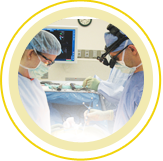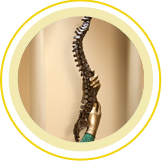A bone scan is the only way to diagnose osteoporosis before a broken bone happens. A bone density test, may be done of your hip or spine to estimate your bone density and determine if treatment is necessary.
Facts About Osteoporosis
Osteoporosis is a condition in which the mass of your bones decreases so that your bones are weaker and brittle. This is because your body can’t replace old bone with new bone fast enough. Your bones then become porous, with holes and spaces that are larger than normal.
It is often difficult to know if you have osteoporosis as you may not have daily symptoms. Some patients do have pain in their back and can have limited mobility. Other side effects of osteoporosis can include bone fracture often in the hip, spine, or wrist. It can also cause patients to lose height or have a hunched posture.
Who Should I Have a Bone Density Test
If you’ve recently broken a bone and have one or more other risk factors, you may need to have a bone density exam. Women are more likely than men to have osteoporosis, and most people affected are at least 50 years old or older.
It is recommended that you contact our spine specialists to have a bone density test at Spine & Scoliosis Specialists if you:
- Are a woman over age 65 or a man over age 70
- Are a menopausal woman or man over the age of 50 with risk factors
- Have broken a bone over the age of 50
- Have height loss in your spine
Treatments for Severe Osteoporosis
At Spine & Scoliosis Specialists, we can help determine the best way to prevent or treat the effects of osteoporosis. Vitamins, exercise, and medications can help to prevent bone loss caused by osteoporosis. When fractures occur due to bone loss, a kyphoplasty or vertebroplasty procedure may be necessary to treat the spine fracture.
Contact Spine & Scoliosis Specialists located in Greensboro and High Point to schedule an appointment if you are at risk of osteoporosis.



